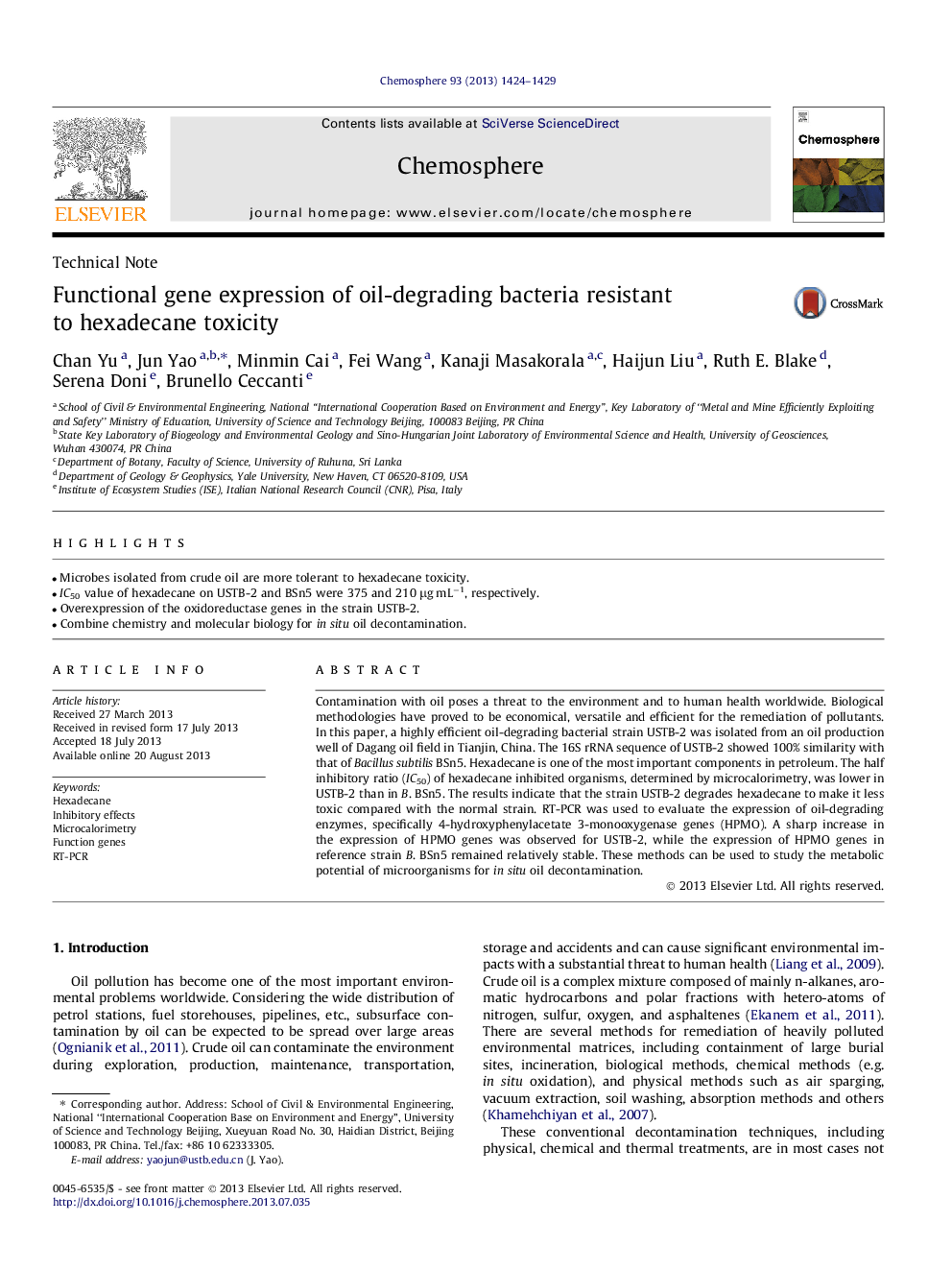| کد مقاله | کد نشریه | سال انتشار | مقاله انگلیسی | نسخه تمام متن |
|---|---|---|---|---|
| 4409203 | 1307468 | 2013 | 6 صفحه PDF | دانلود رایگان |

• Microbes isolated from crude oil are more tolerant to hexadecane toxicity.
• IC50 value of hexadecane on USTB-2 and BSn5 were 375 and 210 μg mL−1, respectively.
• Overexpression of the oxidoreductase genes in the strain USTB-2.
• Combine chemistry and molecular biology for in situ oil decontamination.
Contamination with oil poses a threat to the environment and to human health worldwide. Biological methodologies have proved to be economical, versatile and efficient for the remediation of pollutants. In this paper, a highly efficient oil-degrading bacterial strain USTB-2 was isolated from an oil production well of Dagang oil field in Tianjin, China. The 16S rRNA sequence of USTB-2 showed 100% similarity with that of Bacillus subtilis BSn5. Hexadecane is one of the most important components in petroleum. The half inhibitory ratio (IC50) of hexadecane inhibited organisms, determined by microcalorimetry, was lower in USTB-2 than in B. BSn5. The results indicate that the strain USTB-2 degrades hexadecane to make it less toxic compared with the normal strain. RT-PCR was used to evaluate the expression of oil-degrading enzymes, specifically 4-hydroxyphenylacetate 3-monooxygenase genes (HPMO). A sharp increase in the expression of HPMO genes was observed for USTB-2, while the expression of HPMO genes in reference strain B. BSn5 remained relatively stable. These methods can be used to study the metabolic potential of microorganisms for in situ oil decontamination.
Journal: Chemosphere - Volume 93, Issue 7, October 2013, Pages 1424–1429